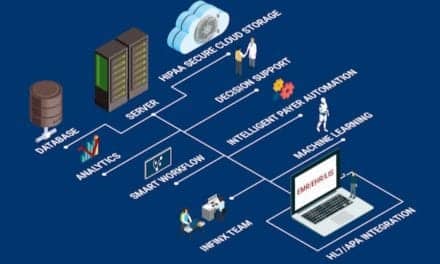Bipartisan legislation aims to overhaul the PAMA rate-setting process that has cut $4 billion in cuts to clinical laboratory services in three years, according to ACLA.
Major clinical laboratory organizations are backing the newly introduced Reforming and Enhancing Sustainable Updates to Laboratory Testing Services (RESULTS) Act, bipartisan legislation designed to reform the Medicare payment system that threatens cuts to laboratory services beginning Jan 1, 2026.
The REFORM Act would overhaul the Protecting Access to Medicare Act (PAMA) rate-setting process, which has cut nearly $4 billion from the Clinical Laboratory Fee Schedule in just three years, according to a release from the American Clinical Laboratory Association (ACLA), which adds that, without congressional action, approximately 820 laboratory tests face payment cuts of up to 15% next year.
The ALCA, College of American Pathologists (CAP), and the National Independent Laboratory Association (NILA) issued statements supporting the legislation, which was introduced by Representatives Richard Hudson (R-NC), Gus Bilirakis (R-FL), Scott Peters (D-CA), Brian Fitzpatrick (R-PA), and Raja Krishnamoorthi (D-IL), along with Senators Thom Tillis (R-NC) and Reverend Raphael Warnock (D-GA).
“Under the current structure dictated by PAMA, the severity of fee reductions would undermine the operational infrastructure of clinical laboratories throughout the United States,” says Donald S Karcher, MD, FCAP, CAP president, in a release. “The RESULTS Act will mitigate these cuts, avert needless loss in access to care, and allow laboratories to continue providing timely, high-quality clinical services for patients.”
PAMA Implementation Created Artificial Rate Cuts
When PAMA was implemented in 2014, it was intended to establish market-based rates for clinical laboratory services through collection of private payer rate data. However, the system set Clinical Laboratory Fee Schedule rates based on data collected from less than 1% of all laboratories, resulting in artificially low payment rates, according to the ACLA.
The RESULTS Act would address these flaws by directing the Centers for Medicare and Medicaid Services to use an independent, not-for-profit commercial claims database with private payer claims data for all laboratory segments when determining rates for widely available tests. For non-widely available tests, including proprietary tests and those for rare diseases, clinical laboratories would report commercial data directly to CMS.
“Clinical laboratories deliver essential information that individuals need to better understand their own health status, while also serving as the backbone of our health care system, providing the results that inform 70% of medical decisions,” says Susan Van Meter, ACLA president, in a release.
Administrative Burden Reduction Included
Beyond payment reform, the legislation would reduce administrative burden by extending the rate-setting cycle from every three years to every four years. It would also establish guardrails to protect laboratories from destabilizing annual payment cuts and exclude artificially low Medicaid managed care payment rates from private payer data.
The ACLA has relaunched its “Stop Lab Cuts” advocacy campaign to build support for the legislation. The campaign serves as a resource hub for information on the need for long-term payment reform at StopLabCuts.org.
The organizations emphasized the urgency of passing the RESULTS Act before the Jan 1, 2026, deadline when the next round of cuts would take effect under the current PAMA structure.
“Without immediate reform to PAMA this year, regional and community clinical laboratories could be forced to close their doors, leaving patients without access to critical laboratory testing,” says NILA executive director Mark S Birenbaum, PhD, in a release.
ID 137404548 © Eamesbot | Dreamstime.com




